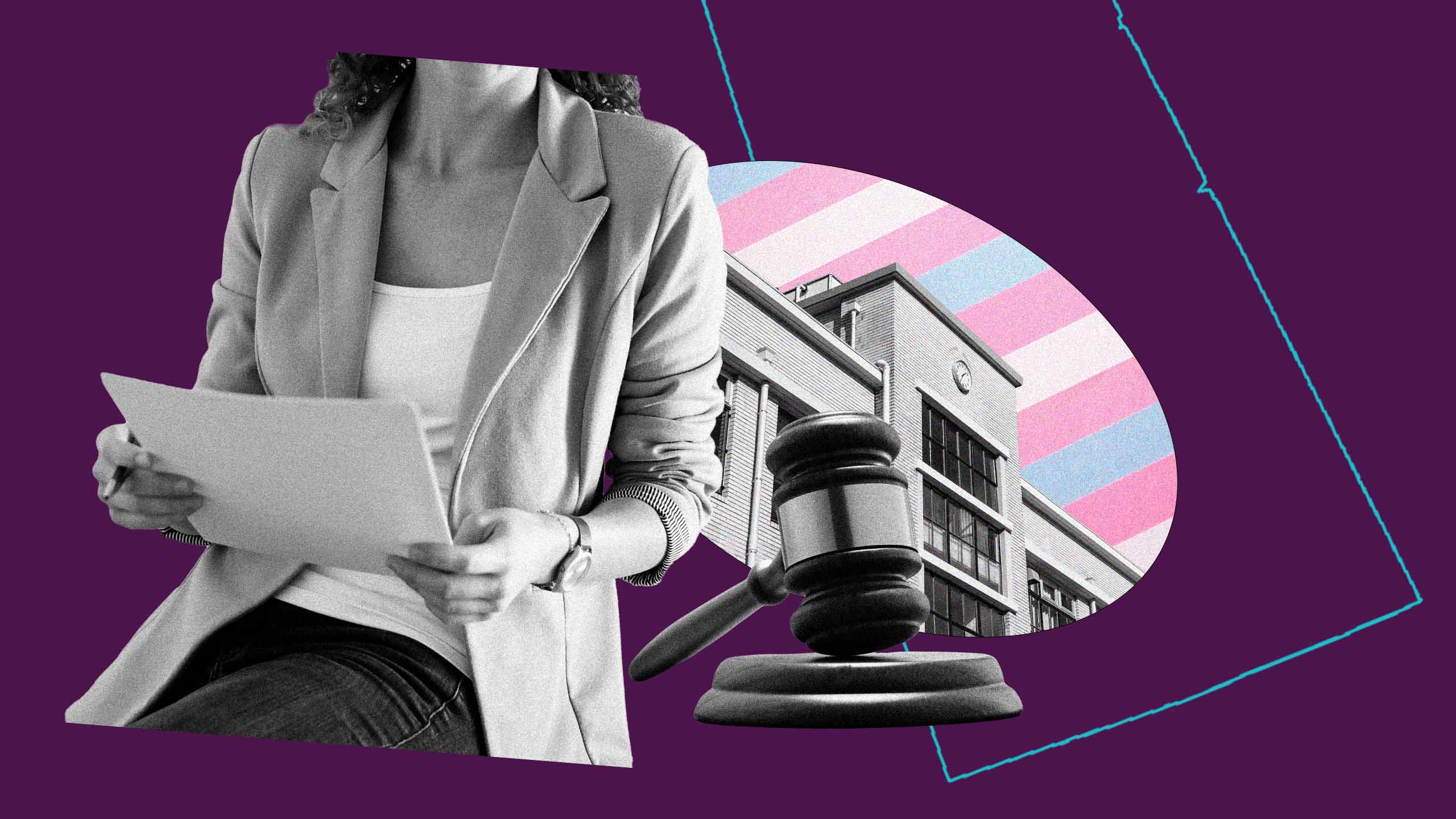Shortly after Saskatchewan enacted its new “Parents’ Bill of Rights,” a petition began circulating calling on the province’s teachers to disobey it.
The law is a shameful piece of anti-trans legislation that requires schools to obtain parental consent before they recognize the chosen names and pronouns of students under 16 years of age. It will out trans children to their parents and expose them to the very real possibility of family violence.
Which is why the law is currently being challenged in court. The government of Saskatchewan has invoked Canada’s constitutional “notwithstanding clause” to try to prevent that court challenge from going ahead.
There’s good reason to think the legal challenge will succeed and strike down the law, regardless. But in the meantime, Saskatchewan teachers are in a bind: do they follow an unjust law, or break it to save trans lives?
Canadian law actually assumes that people will violate unconstitutional laws, and those violations can pave the way for laws to be struck down.
Which is why teachers should break the Saskatchewan Parents’ Bill of Rights.
Here, you need to understand an element of the legal system called “standing.”
Simply put, standing describes someone’s ability to challenge the legality of legislation.
Just because a law is unconstitutional, it doesn’t mean that just anyone can go to court to obtain a ruling invalidating it. You need to have a stake in the law’s application before the judicial system will hear your arguments.
In Canada, there are two kinds of standing.
Let’s say you break an unconstitutional law and are charged with a crime. You would have what’s called “standing as of right” to challenge the law’s validity. This is also known as “private standing,” because it basically means that you are arguing issues that are personal to you.
For example, under the so-called “Lord’s Day Act,” it used to be illegal in Canada to sell goods on Sundays. In the early 1980s, a Calgary store called Big M Drug Mart Ltd. openly violated that prohibition by selling groceries, plastic cups and a bicycle lock on a Sunday. When police charged the company with a crime, Big M successfully argued that the Lord’s Day Act violated its freedom of religion. They were entitled to do so because they themselves had been charged with a crime.
In other words, they needed to break the law in order to have standing to challenge it. And Canada is a more just place because they did. Now we can buy whatever we want on Sundays!
There is a second kind of standing called “public interest standing.”
This is a discretionary form of standing, in that courts have to grant it. Whereas people are entitled to private standing when their own rights are on the line, no one is entitled to public interest standing.
Some laws affect the public at large, or an especially vulnerable segment of the public that would be unable to sue the government on their own. Such laws shouldn’t go unreviewed by the courts simply because there is no individual with the right or the resources to challenge them. Which is why courts have the power to grant standing to litigants who challenge these laws on behalf of the public.
For example, in 2012, the Supreme Court of Canada had to decide whether to grant standing to an organization that worked for the betterment of Vancouver sex workers so it could challenge Canada’s criminal prohibitions on prostitution. In deciding to do so, the court significantly relaxed the test for obtaining public interest standing, opening the door to even more public interest litigation in this country.
Before Saskatchewan enacted its Parents’ Bill of Rights, the anti-trans law was a hastily enacted anti-trans policy entitled the “Use of Preferred First Name and Pronouns by Students.” The University of Regina Pride Centre for Sexuality and Gender Diversity led the charge to invalidate that policy, and in September they received a grant of public interest standing to bring constitutional arguments against the policy’s legality.
Now that the policy is law, it is imperative that those constitutional arguments see the inside of a courtroom so that the law can be struck down as quickly as possible.
The petition circulating amongst Saskatchewan teachers notifies the province’s school divisions that signatories will not violate their students’ constitutional rights by outing them to unsupportive families.
It is unclear at the moment what sort of consequences educators will face for violating the Parents’ Bill of Rights. But whatever those consequences are, they will give those same educators standing as of right to object to the law’s constitutionality.
This means these teachers will be able to join UR Pride in the fight to strike this anti-trans law down.
And that is a fight worth having. Trans lives depend on it.


 Why you can trust Xtra
Why you can trust Xtra


